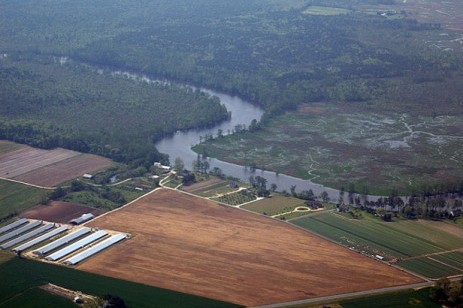
Another international climate conference, another opportunity for a bunch of misinformed claptrap from the talking heads whose blithering passes for punditry in the internet age.
The Guardian leads this morning with a tempest-filled teapot of half-truths:
• Four myths that hold back progress in fighting climate change (Dec. 2 2010)
What follows are the four “myths” listed by authors Vinod Thomas and Kenneth Chomitz, a director-general and senior advisor at the World Bank, respectively. For help in busting them, today we call on Scientific American’s energy and climate change editor, David Biello, a man so well informed about energy they gave him his own television show.

Myth No 1: Energy efficiency can’t meet energy needs
In reality: This “myth” is true. Energy efficiency isn’t the same as generating new energy.
Energy efficiency can help reduce energy consumption in the short term, and is probably helpful in the context of absolute constraints on energy production capacity — say, if we start running out of fossil fuels faster than we can transition to renewables.
Absent those constraints, energy efficiency is like putting energy on sale — history suggests that the “rebound” effect (aka Jevon’s Paradox) leads to overall increases in energy use when energy becomes cheaper.
• Related: The Old Blast Furnace Economy, Caixin Online (Dec. 2 2010)
Chinese companies consume as much as 30 percent more energy than their industrialized peers — how the economy can lift off from energy efficiency technology

Myth No 2: Protected areas don’t help the environment
In reality: On this count the authors are right — protected areas do help the environment. According to Biello, “Yes, protected areas do “discourage” deforestation — but they don’t stop it. I’ll let this one slide because I generally agree with it.”
• Related: A Good REDD Deal Is A Green Light For Forest Protection, Huffington Post (Dec. 2 2010)
Tropical forest destruction is responsible for about a fifth of global greenhouse gas emissions — more than emissions from all the world’s cars, planes, and trains put together.

Myth No 3: Carbon markets will naturally promote renewable energy investments
In reality: The “myth” stands — carbon markets will promote investments, but only if that price is high enough. The authors point out that so far, the price of carbon on most markets has been too low. Well, duh!
• Related: Cap-and-Trade Market for North America Weighed by States After Obama Fails, Bloomberg (Nov. 30 2010)
The emissions-trading system would be based on a planned carbon market in California, the most populous state, and an existing regional cap-and-trade program for power plants in the Northeast, according to state environmental officials. Three Canadian provinces have also shown interest in a cross-border carbon-trading system, the officials said. “The key is to have as large and as liquid a market as possible,” John Yap, British Columbia’s climate-change minister, said in a telephone interview.

Myth No 4: Technology transfer revolves around intellectual property rights
In reality: This “myth” is true! The transfer of low-carbon and other climate-mitigating technologies to the developing world — absolutely does revolve around intellectual property rights! Thomas and Chomitz cite demonstration projects in the third world as an example of an alternative to wrangling with intellectual property rights, but even these projects are plagued with issues of developing country “digestion” of the intellectual property embodied by a demonstration project.
“It’s the way Asian countries, ahem, sign contracts with Western companies, then [collaboratively] build a few, say, power plants and then come up with an “indigenous” design that eerily resembles that technology,” says Biello.
• Related: India has potential to be leader in green technology: Ramesh, The Times of India (Dec. 1 2010)
India’s environment minister argues that the country should start innovating domestically and stop whining about receiving transfers of green (and nuclear) technology from the West, and instead tread climate change as a “god-sent opportunity to Indian business to become world leader in green technology.”
What do you think? Are there any issues of contention in the race to survive climate change that our friends at the World Bank missed? Leave them in the comments.




